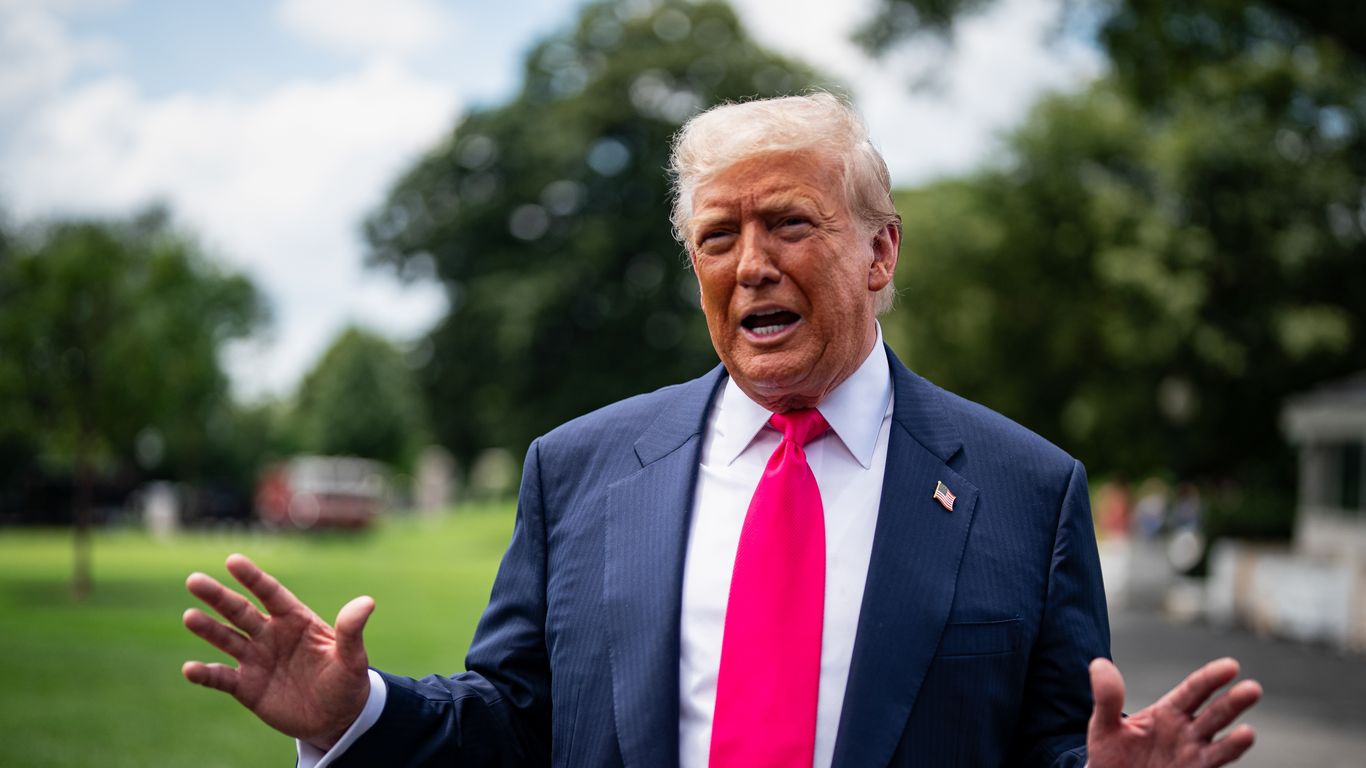Controversial Nominee Confirmed as Federal Judge: Impact on US Justice System

Introduction
The US Senate has confirmed Emil Bove, a controversial nominee, as a federal judge. Bove, a former lawyer for Donald Trump and current top Justice Department official, has been the target of three whistleblower complaints. This confirmation has sparked debate and raised concerns about the potential impact on the justice system.
Key Details
Bove's close ties to Trump and his role in the Justice Department have raised questions about his ability to be an impartial judge. Bove has also faced allegations of misconduct, including using his position in the Justice Department to push for Trump's political agenda. This has caused concern among those who believe in the importance of an independent judiciary.
With Bove's confirmation, many are worried about the potential consequences for future court cases, especially those involving the Trump administration. The influence of politics on the justice system is a major concern, and Bove's confirmation only adds to these concerns.
Impact
The confirmation of Emil Bove as a federal judge highlights the ongoing debate about the politicization of the US justice system. It also raises questions about the integrity and independence of the judiciary. With Bove's close ties to Trump and the controversies surrounding his nomination, it is crucial for the justice system to uphold its principles and ensure that justice is served fairly for all individuals, regardless of political affiliations.
About the People Mentioned
Emil Bove
Emil Joseph Bove III, born in 1981 in Geneva, New York, is a U.S. federal judge serving on the Court of Appeals for the Third Circuit.[4] He earned a B.A. summa cum laude in public policy and economics from the State University of New York at Albany in 2003, captaining the lacrosse team and earning America East Conference Male Scholar-Athlete of the Year honors, followed by a J.D. from Georgetown University Law Center in 2008, where he was editor-in-chief of the Annual Review of Criminal Procedure.[3][4] Bove began his legal career with clerkships for U.S. District Judge Richard J. Sullivan (Southern District of New York, 2008–2009) and Second Circuit Judge Richard C. Wesley (2009–2010).[1][4] He practiced briefly at Sullivan & Cromwell (2010–2012), then served as an Assistant U.S. Attorney in the Southern District of New York (2012–2021), rising to co-chief of the Terrorism and International Narcotics Unit in 2019.[2][3][4] Notable prosecutions included César Sayoc (pipe bomber), Ahmad Khan Rahimi, and the brother of Honduran President Juan Orlando Hernández on drug and weapons charges.[2][3][6] From 2022–2023, Bove worked at Chiesa, Shahinian & Giantomasi, then joined Blanche Law as a partner in 2023, representing Donald Trump as second chair in his New York falsifying business records trial (conviction on 34 felony counts), and in federal classified documents and election obstruction cases.[1][2][7] After Trump's 2024 re-election, Bove became principal associate deputy attorney general in November 2024, briefly acting deputy attorney general in early 2025 under Attorney General Pam Bondi, overseeing deportations and personnel changes.[1][2][3][4] Nominated by Trump on June 16, 2025, to the Third Circuit seat vacated by Judge Joseph A. Greenaway Jr., Bove was Senate-confirmed on July 29, 2025, and commissioned on August 20, 2025.[4] His tenure has drawn scrutiny for prior Trump defense work and DOJ actions, including dismissing the Eric Adams case.[3][7]
Donald Trump
Donald John Trump, born June 14, 1946, in Queens, New York, is an American businessman, media personality, and politician. He graduated from the University of Pennsylvania’s Wharton School in 1968 with a degree in economics. In 1971, he took over his family’s real estate business, renaming it the Trump Organization, through which he expanded into building and managing skyscrapers, hotels, casinos, and golf courses. Trump gained widespread fame as the host of the reality TV show *The Apprentice* from 2004 to 2015, which helped establish his public persona as a successful entrepreneur. Trump entered politics as a Republican and was elected the 45th president of the United States, serving from 2017 to 2021. His presidency was marked by significant policy actions including tax cuts, deregulation, the appointment of three Supreme Court justices, renegotiation of trade agreements (notably replacing NAFTA with the USMCA), and a focus on immigration control including border wall expansion. He withdrew the U.S. from international agreements such as the Paris Climate Accord and the Iran nuclear deal, and engaged in a trade war with China. His administration’s response to the COVID-19 pandemic was criticized for downplaying the virus’s severity. Trump was impeached twice by the House of Representatives—first in 2019 for abuse of power and obstruction, and again in 2021 for incitement of insurrection—but was acquitted by the Senate both times. After losing the 2020 election to Joe Biden, Trump challenged the results, culminating in the January 6, 2021, Capitol riot. He remains a central figure in American politics, having won the 2024 presidential election and returned as the 47th president in 2025, continuing to promote policies aimed at economic growth, border security, and military strength[1][2][3][4].
About the Organizations Mentioned
Justice Department
The United States Department of Justice (DOJ) is the principal federal agency responsible for enforcing federal laws, ensuring public safety, and protecting civil rights. Headquartered in Washington, D.C., the DOJ operates under the leadership of the Attorney General, who serves as a key member of the President’s Cabinet. As of 2025, Pam Bondi holds this position, having taken office in February and quickly shaping the department’s priorities. Established in 1870 during President Ulysses S. Grant’s administration, the DOJ’s roots trace back to the creation of the Attorney General’s office in 1789. Over the years, it has grown into a vast organization with more than 115,000 employees and over 40 component agencies, including the Federal Bureau of Investigation (FBI), Drug Enforcement Administration (DEA), and U.S. Marshals Service. The DOJ also houses specialized divisions for criminal, civil, antitrust, tax, civil rights, and national security matters, and oversees 94 U.S. Attorney offices nationwide. The DOJ’s mission centers on upholding the rule of law, safeguarding national security, and defending civil liberties. In 2025, the department has shifted its enforcement focus, prioritizing areas such as healthcare fraud, customs and tariff evasion, and corporate misconduct, especially involving foreign adversaries and financial gatekeepers. Recent policy changes have emphasized efficiency in investigations and reduced reliance on corporate compliance monitors, reflecting a broader effort to minimize regulatory burdens on businesses. Notably, the DOJ has also been tasked with reviewing past government conduct to address concerns about the “weaponization” of federal agencies, ensuring accountability and restoring public trust. For business and technology leaders, the DOJ’s evolving priorities—particularly in areas like cybersecurity, antitrust, and international trade—have significant implications for compliance, risk management, and corporate governance.















